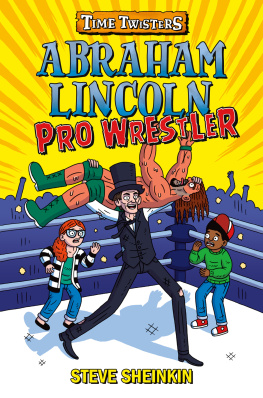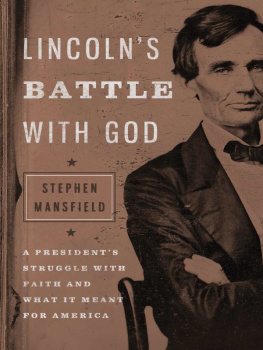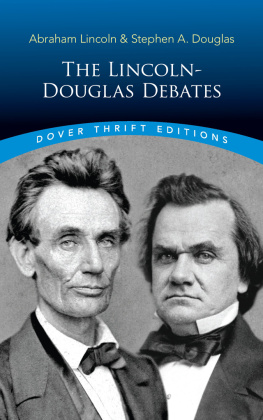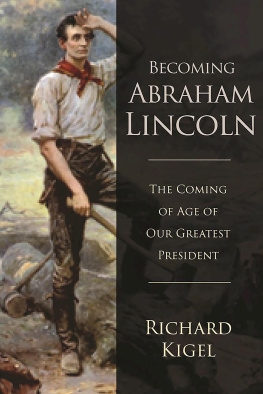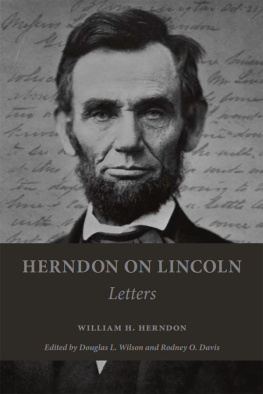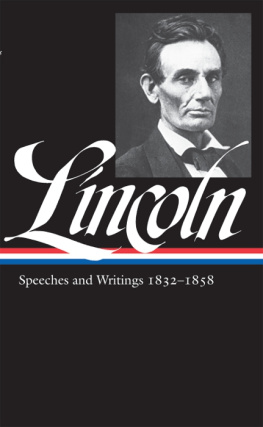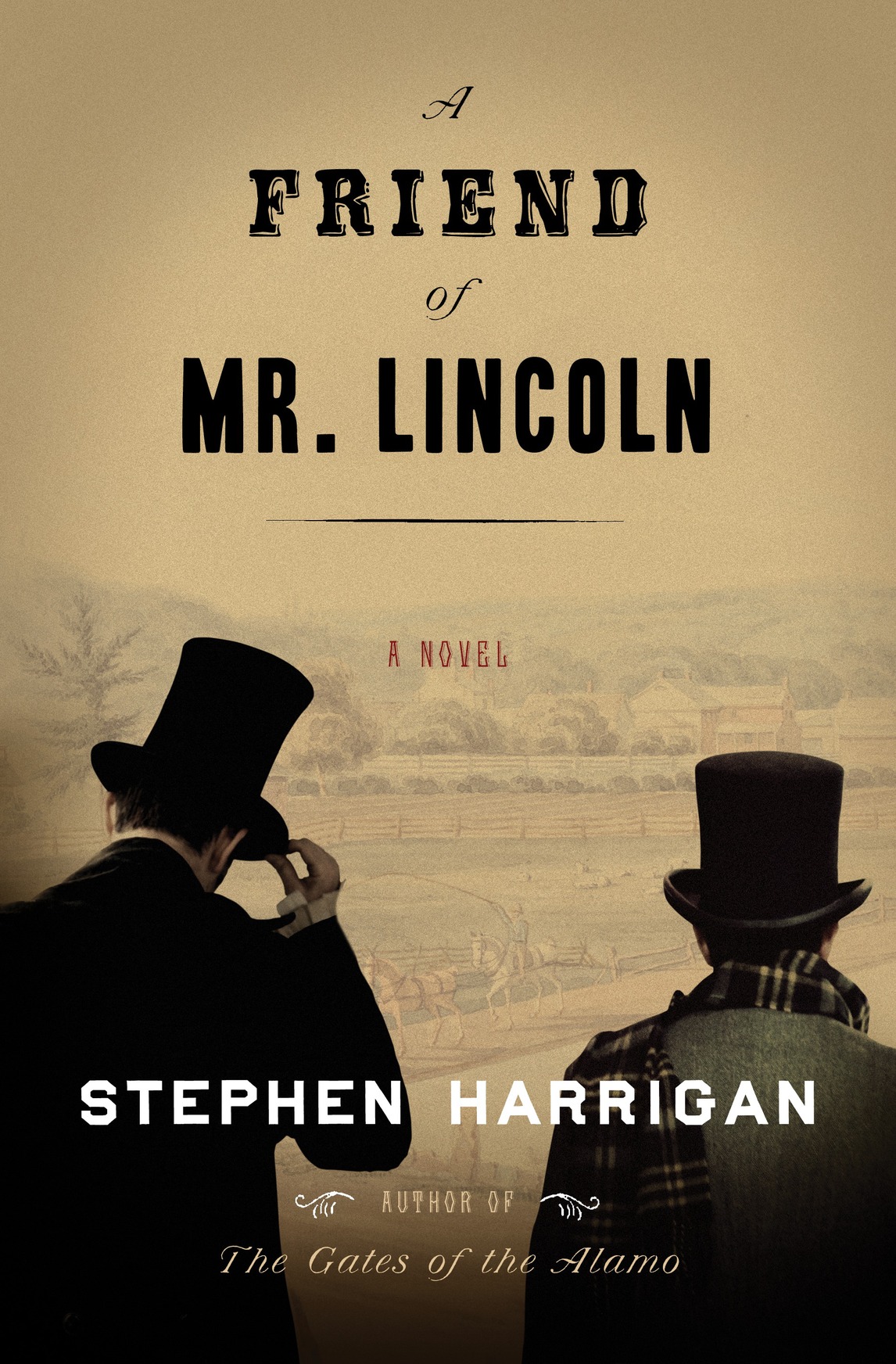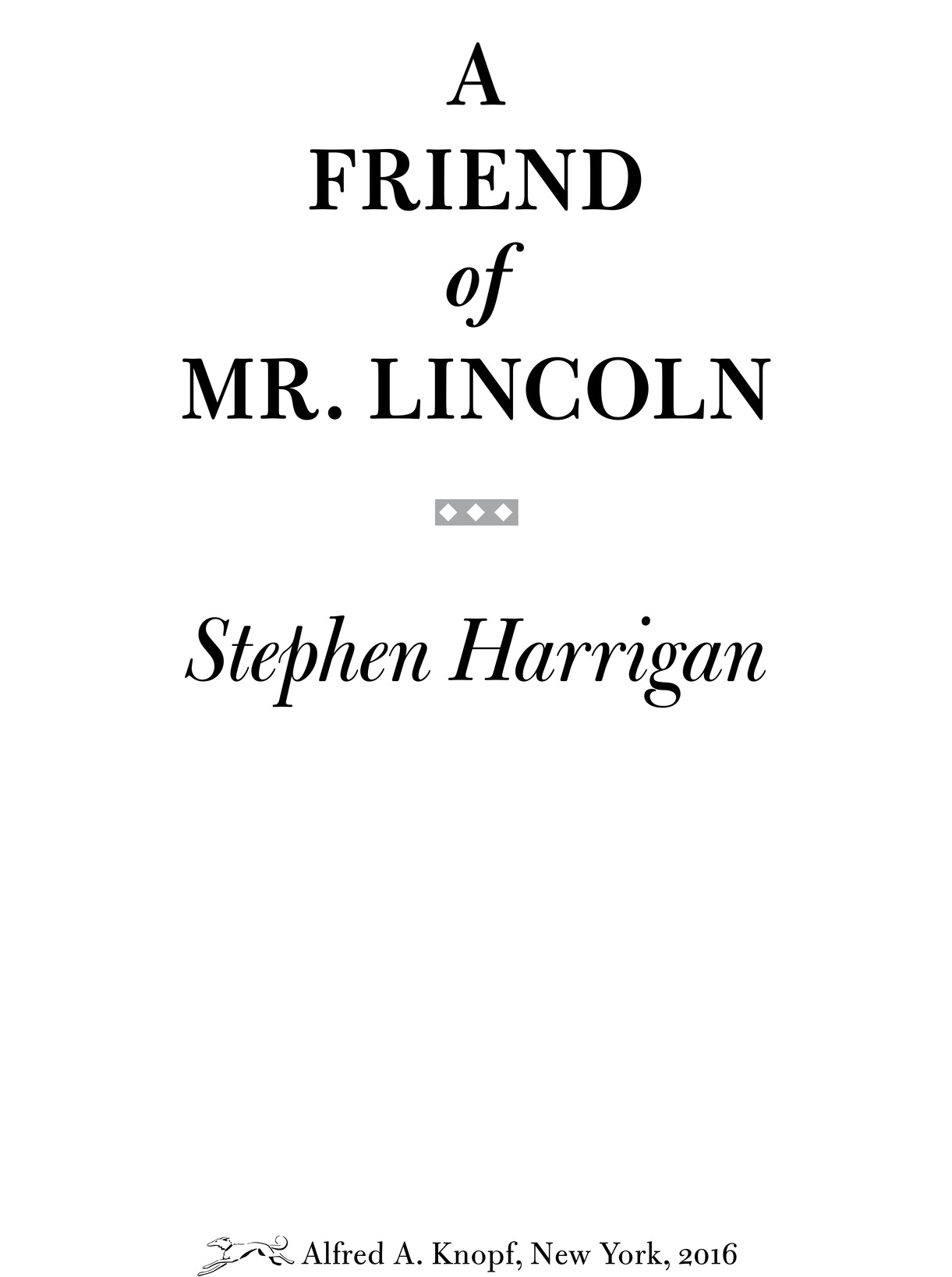ALSO BY STEPHEN HARRIGAN
FICTION
Remember Ben Clayton
Challenger Park
The Gates of the Alamo
Jacobs Well
Aransas
NONFICTION
The Eye of the Mammoth: Selected Essays
Water and Light: A Divers Journey to a Coral Reef
Comanche Midnight
A Natural State: Essays on Texas
THIS IS A BORZOI BOOK PUBLISHED BY ALFRED A. KNOPF
Copyright 2016 by Stephen Harrigan
All rights reserved. Published in the United States by Alfred A. Knopf, a division of Penguin Random House LLC, New York, and distributed in Canada by Random House of Canada, a division of Penguin Random House Canada Ltd., Toronto.
www.aaknopf.com
Knopf, Borzoi Books, and the colophon are registered trademarks of Penguin Random House LLC.
Library of Congress Cataloging-in-Publication Data
Harrigan, Stephen, [date]
A friend of Mr. Lincoln : a novel / Stephen Harrigan.
pages cm
ISBN978 - 0 - 307 - 70067 - 4 (hardback) ISBN978 - 1 - 101 - 94686 - 2 (eBook)
1 . Lincoln, Abraham, 18091865 Friends and associatesFiction. I. Title.
PS3558 . A626F852016
813 '. 54 dc 232015015853
eBook ISBN9781101946862
This is a work of fiction. Names, characters, places, and incidents either are the product of the authors imagination or are used fictitiously. Any resemblance to actual persons, living or dead, events, or locales is entirely coincidental.
Cover images: (left to right) Lee Avison / Arcangel Images; Susan Fox / Trevillion Images; (background) Print by John W. Hill / The NYPL / Art Resource, N.Y.
Cover design by Joe Montgomery
v4.1
ep
Contents
FOR MAISIE AND ROMY
ONE
T HE LINE TO SEE THE PRESIDENT moved slowly, stuporously, six citizens abreast. It began somewhere in the disordered crowd that had jammed the city square and inched past uniformed guards to the wrought-iron fence surrounding the statehouse. Micajah Weatherby shuffled forward with the rest, thinking he might be greeted at any moment by a friendly, astonished voice. Cage Weatherby! By God, youre in Springfield? What are you doing waiting in this line with everyone else? Come with me at once. Why, of all the people he wouldnt want standing out here in the heat!
He doubted, though, that anyone would recognize him. He was fifty-four, rather portly now, though only a few years earlier he had been as athletically trim as when he and the rest of the young blades of Springfield used to play fives against the brick walls behind the square. But the violent loss of his left arm had given him a disinclination to take exercise at a time when the driving purpose of his middle-aged body was to accumulate mass. So he was incognito: forgotten, fat, one-armed, his face hidden beneath the bushy whiskers of the age.
The odds were not certain that he would recognize anyone in return: all those once familiar faces, clean-shaven in the long ago but now doubtless also obscured by beards, and fleshy or slack with age. His old friends, unseen for so many years, would have missing teeth, thinning hair, stooped and tired stances. Perhaps one of them was standing within arms reachJoshua Speed, or Ashbel Merritt. No, if they were here they would not be waiting in line with all the barbers and storekeepers and mechanics. They would be inside already, in a special room set aside for them.
Although they began letting the crowd in at midmorning, it was noon before Cage was finally inside the statehouse and upstairs in the Hall of Representatives. There the line that had been moving so sluggishly was parted in two by the guards and suddenly accelerated, flowing around the catafalque with a disorienting swiftness. Perhaps that was for the best, because when Cage finally saw the face in the coffin he had to fight back the instinct to shut his eyes and shove his way back down the stairs.
He was on more familiar terms with death than most, even in those terrible years. But this was Abraham Lincoln, and this was death in a new register: more profound, more final, as bewildering to him as if he were encountering the unthinkable phenomenon for the first time. It was strangely silent in that venerable public place. Everyone was too stunned to weep. Nevertheless, he could feel his composure eroding. He was glad the procession had not been any slower. He did not want to look at that face a moment more.
He was too unsettled to see it clearly. He just had the impression of something truly and obscenely dead, dead for weeks and now, for all the grim majesty of the surroundings, cheaply and shockingly displayed. It was obvious the body should have been long underground. The banks of flowers and evergreens were meant to hide the scent of putrefaction, but they only made it more obvious. His facecould that really be, have been, his friend Lincolns face?was a moldering mess, collapsing in on itself beneath a glaring white shell of chalk and rouge.
When Cage looked up from the coffin he met the eyes of some poor girl from the Philharmonic Society. She looked stricken as she lent her voice to the choirs soothing hymn, trying to keep from fainting in the crowded, close room, the windows draped, the gas lit, the mourners passing by in their unending multitudes, glancing down one by one with the same expression of solemn horror. He felt sorry for her, imprisoned in this hothouse with a corroding corpse, under the press of an entire nations sorrow.
He filed out with the others beneath various mottoes that had been put up among the greenery and the black droopers. Washington the Father, Lincoln the Saviour. Though dead, he yet speaketh. He made his way downstairs through the south door and into the blessed May air, where the smell of the lilac blossoms was unforced and no longer in service as a fragrant assault on decay. The whole square, the whole city, was covered in black. The massive columns of the county courthouse across Sixth Street had been turned into funereal barber poles with their swirling bands of black and white.
The people who were not in line to see the body, or who were not standing about aimlessly on the streets, were walking en masse from one place to the next where Lincoln had lived, where he had worked, to see the things that his now-sacred hands had touched. Cage walked with them , just another stranger in town, another grieving curious tourist, and found himself at the house at Eighth and Jackson that Lincoln and Mary had bought back in the forties, not long before they had mostly vanished from his life. The house had only one story back then. It had soon enough been turned into a capacious two-level dwelling of a prosperous man of the law. Cage had never seen it from the insidenever invited, thanks to Mary.



